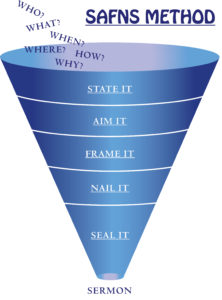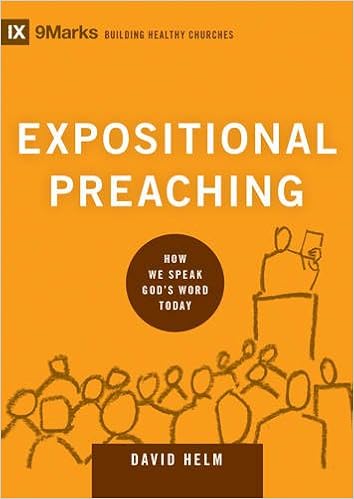 I just returned from a ten-day boat trip down the eastern coast from Falmouth, Maine to Norfolk, Virginia in Mark Halfacre’s boat Pegasus. Mark was beginning his trip down the intra-coastal waterway to Florida, and I had the privilege of joining him on the first leg. Each night Mark would get out his navigational charts on the iPad and plot his course for the next day. He had to chart a course that avoided shoals under water and buoys above yet led us to the next marina.
I just returned from a ten-day boat trip down the eastern coast from Falmouth, Maine to Norfolk, Virginia in Mark Halfacre’s boat Pegasus. Mark was beginning his trip down the intra-coastal waterway to Florida, and I had the privilege of joining him on the first leg. Each night Mark would get out his navigational charts on the iPad and plot his course for the next day. He had to chart a course that avoided shoals under water and buoys above yet led us to the next marina.SERMON WAYPOINTS
 I just returned from a ten-day boat trip down the eastern coast from Falmouth, Maine to Norfolk, Virginia in Mark Halfacre’s boat Pegasus. Mark was beginning his trip down the intra-coastal waterway to Florida, and I had the privilege of joining him on the first leg. Each night Mark would get out his navigational charts on the iPad and plot his course for the next day. He had to chart a course that avoided shoals under water and buoys above yet led us to the next marina.
I just returned from a ten-day boat trip down the eastern coast from Falmouth, Maine to Norfolk, Virginia in Mark Halfacre’s boat Pegasus. Mark was beginning his trip down the intra-coastal waterway to Florida, and I had the privilege of joining him on the first leg. Each night Mark would get out his navigational charts on the iPad and plot his course for the next day. He had to chart a course that avoided shoals under water and buoys above yet led us to the next marina.THE SAFNS FUNNEL PREACHING METHOD
 Preaching is disciple-making. Our purpose in preaching is to grow fully developed followers of Jesus Christ. We must not neglect the often forgotten word in the Great Commission given to us by Jesus when he called us to teach the people “to observe ALL that I commanded you” (Mt. 28:20). As Paul told the Ephesian elders, “I did not shrink from declaring to you the whole purpose of God” (Acts 20:27). Expository preaching is the best way to achieve the purpose of disciple-making in corporate worship.
Preaching is disciple-making. Our purpose in preaching is to grow fully developed followers of Jesus Christ. We must not neglect the often forgotten word in the Great Commission given to us by Jesus when he called us to teach the people “to observe ALL that I commanded you” (Mt. 28:20). As Paul told the Ephesian elders, “I did not shrink from declaring to you the whole purpose of God” (Acts 20:27). Expository preaching is the best way to achieve the purpose of disciple-making in corporate worship.IS ANYBODY LISTENING?
 We preach our hearts out Sunday after Sunday. Nothing much seems to change! Change comes slowly in small-town churches. The same people sit in the same seats occasionally supplemented by a new family in town. Growth is slow with frequent setbacks. Resources for ministry are limited. “Nice sermon, pastor,” people say as they leave. “Good job.” Another Sunday done. All good. Little changes. Lord, is anybody listening?
We preach our hearts out Sunday after Sunday. Nothing much seems to change! Change comes slowly in small-town churches. The same people sit in the same seats occasionally supplemented by a new family in town. Growth is slow with frequent setbacks. Resources for ministry are limited. “Nice sermon, pastor,” people say as they leave. “Good job.” Another Sunday done. All good. Little changes. Lord, is anybody listening?I agree with Karl Vaters that small church pastors are some of the hardest working and faithful servants of the Lord. He writes that “discouragement is unquestionably the most widespread burden faced by small church pastors.” More small church pastors leave the ministry because of discouragement than any other factor. He notes that the most common cause of discouragement comes from “feelings of failure for not hitting the goals for numerical increase that are set, either by others or by ourselves” (“The 3 Most Common Challenges Small Church Pastors Face – and How to Help,” Pivot Blog, June 1, 2018, Christianitytoday.com). Read more…
MEASURING TO IMPROVE
 Satisfaction is the enemy of improvement. We have to want to improve our preaching before we can improve our sermons. A pastor recently asked me about the purpose behind the preaching cohorts. I explained that the objective is to gather with other pastors to improve our preaching. His response was all too common. He said, “I’m pretty satisfied with my preaching. It is something I think I do well at and enjoy doing.” Here is the danger we all face. We start to settle. What we are doing works. Why fix what is working? We become satisfied, so we stop improving. Read more…
Satisfaction is the enemy of improvement. We have to want to improve our preaching before we can improve our sermons. A pastor recently asked me about the purpose behind the preaching cohorts. I explained that the objective is to gather with other pastors to improve our preaching. His response was all too common. He said, “I’m pretty satisfied with my preaching. It is something I think I do well at and enjoy doing.” Here is the danger we all face. We start to settle. What we are doing works. Why fix what is working? We become satisfied, so we stop improving. Read more…PATHETIC PREACHING
 Apostolic preaching was intentionally persuasive. Rhetoric is the art of persuasion. Therefore, apostolic preaching was rhetorical without being dependent on rhetoric. Unfortunately, the church in the first few centuries moved away from the apostolic model of limited rhetoric to a culturally popular model of professional rhetoric. As society accepted the church, preachers adopted a professional model for preaching, and the sermon took on the rhetorical style of the culture. Modern sermons, too, can bear little resemblance to the apostolic model in our desire to be culturally relevant. Why? What changed? Read more…
Apostolic preaching was intentionally persuasive. Rhetoric is the art of persuasion. Therefore, apostolic preaching was rhetorical without being dependent on rhetoric. Unfortunately, the church in the first few centuries moved away from the apostolic model of limited rhetoric to a culturally popular model of professional rhetoric. As society accepted the church, preachers adopted a professional model for preaching, and the sermon took on the rhetorical style of the culture. Modern sermons, too, can bear little resemblance to the apostolic model in our desire to be culturally relevant. Why? What changed? Read more…A REVIEW OF EXPOSITIONAL PREACHING
 The atheist philosopher Friedrich Nietzsche wrote, “he who knows himself to be profound endeavors to be clear; he who would like to appear profound endeavors to be obscure.” Too many homileticians labor to sound profound as they seek to make their books academic. Thankfully, not David Helm. His book, Expositional Preaching: How We Speak God’s Word Today, is short, lucid and insightful. I have read many books on preaching in recent years and, I must confess, when I picked this one up I wondered if anything worthwhile could come from such a short text. I was wrong. These 112 pages are as helpful a text on preaching as I have read in some time.
The atheist philosopher Friedrich Nietzsche wrote, “he who knows himself to be profound endeavors to be clear; he who would like to appear profound endeavors to be obscure.” Too many homileticians labor to sound profound as they seek to make their books academic. Thankfully, not David Helm. His book, Expositional Preaching: How We Speak God’s Word Today, is short, lucid and insightful. I have read many books on preaching in recent years and, I must confess, when I picked this one up I wondered if anything worthwhile could come from such a short text. I was wrong. These 112 pages are as helpful a text on preaching as I have read in some time.David Helm is the lead pastor for Holy Trinity Church in Chicago, Illinois and the chairman of the Charles Simeon Trust, a ministry devoted to expositional preaching. He wrote the book to be the preaching entry in the series, 9Marks: Building Healthy Churches led by Mark Dever. The first mark of a healthy church is expositional preaching, and this book explains what that means in a very readable manner. You can check out more resources on their websites, www.simeontrust.org and www.9Marks.org. I recommend both ministries as excellent resources for any pastor. Read more…
WHAT’S THE BIG IDEA?
 Should the main idea of the sermon follow the main idea of the biblical passage in expository preaching? The question strikes at the heart of what we do. Text-driven preaching answers “yes” to the question. The text should drive the sermon otherwise we are in danger of using the text to support our ideas instead of submitting our ideas to the authority of the text. I agree.
Should the main idea of the sermon follow the main idea of the biblical passage in expository preaching? The question strikes at the heart of what we do. Text-driven preaching answers “yes” to the question. The text should drive the sermon otherwise we are in danger of using the text to support our ideas instead of submitting our ideas to the authority of the text. I agree.MONDAY MORNING BLUES
 Easter Sunday was great. Monday morning, not so much!
Easter Sunday was great. Monday morning, not so much!PREACHING IN A “JESUS LITE” WORLD

IS THE SERMON PAGAN?



